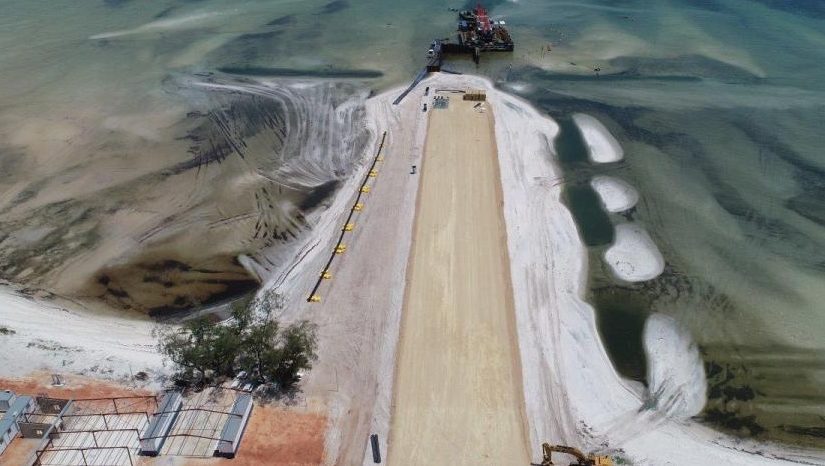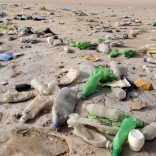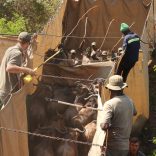Illegal fishing threatens Mozambique’s biodiversity
Environmental organisation goes to court to block British investment in Mozambique LNG project

Photo: Total
The environmental organization Friends of the Earth is trying to block the British government’s financial investment in liquefied natural gas (LNG) projects in northern Mozambique through the courts.
The organization’s argument is that international standards on the environment and human rights are at stake, and that there is a lack of transparency because the study on the impacts of the project had not been published, and a disregard of the commitments made in the Paris Agreement to reduce investments in infrastructure for fossil fuels.
The organization confirmed yesterday to Lusa News Agency that it had instructed lawyers to present a “request for judicial review of the decision to invest and intends to obtain a declaration that, in doing so, the government acted illegally” this week.
Friends of the Earth says that offshore and onshore construction work will have immediate environmental implications, notably due to the need for dredging, installation of underwater structures, walls and docks, which will result in the destruction of wetland and estuary habitats.
In terms of the impact on the population, it anticipates the relocation of inhabitants of fishing villages and an increase by up to 10% in emissions of polluting gases by 2022.
“Gas developments are also contributing to the destabilisation of Cabo Delgado province, fuelling the underlying tensions and contributing to the increase in violence in Northern Mozambique,” it warns.
The British government confirmed in July that it would contribute up to GBP1.15 billion (€1.3 billion) to the liquefied natural gas project in northern Mozambique through the UK Export Finance agency.
The support consists of GBP300 million (€333 million) in direct loans to British companies and GBP850 million (€944 million) in guarantees to commercial banks that grant loans.
Will Rundle of Friends of the Earth accused London of “hypocrisy”, saying that the project would aggravate the “climate catastrophe” in one of the poorest countries in the world, which was already suffering the impact of climate change, in reference to cyclones and floods recorded last year.
For lawyer Rowan Smith, at stake is the UK government’s obligation to disclose the environmental impact of the project, in an investment which may violate a series of international laws on the environment and human rights.
ALSO READ: Natural gas is the rich world’s new coal
French oil company Total said it had secured US$14.9 billion (€13 billion) financing for the project, including direct and covered loans from eight export credit agencies, 19 commercial banking institutions and a loan from the African Development Bank.
The project involves the development of offshore gas production units linked to an onshore installation for gas liquefaction for domestic consumption and export. French oil company Total offers 2024 as the deadline for the first delivery of gas, which is expected to reach full production of 13.12 million tons per year in 2025.
The consortium has closed sales contracts mainly in Asian markets (China, Japan, India, Thailand and Indonesia), but also in Europe, through Électricité de France, Shell and the British company Centric.
Total leads the Area 1 consortium with 26.5%, alongside Japanese Mitsui (20%) and the Mozambican state oil company ENH (15%), with further participation by the Indian NGO Videsh (10%) and its subsidiary Beas (10%), Bharat Petro Resources (10%), and Thai PTTEP (8.5%).












Leave a Reply
Be the First to Comment!
You must be logged in to post a comment.
You must be logged in to post a comment.